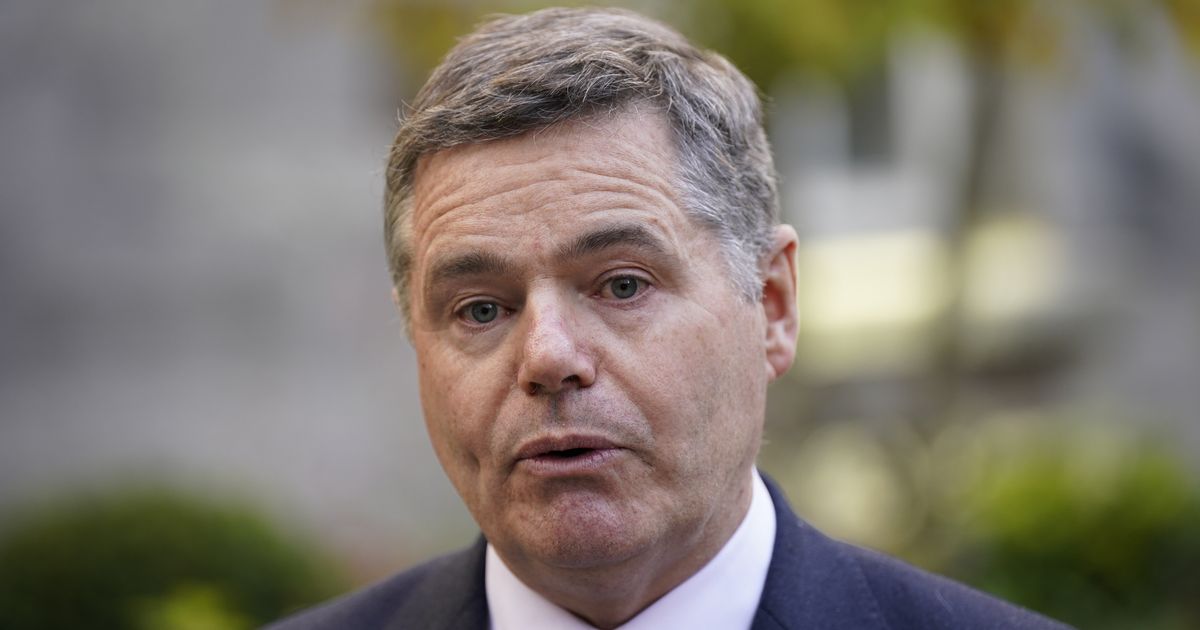By Louise Burne
Budget 2026 will need to “entail trade-offs” and require the Government to make “choices and commitments” on spending and tax, the Central Bank Governor has warned.
In Governor Gabriel Makhlouf’s annual letter to Finance Minister Paschal Donohoe ahead of Budget 2026 in October, he warned of the dangers posed by the “narrow” income tax rates.
The Government has repeatedly narrowed the tax base by changing workers’ tax rates. This has been done by changing the USC rates and bands and the cutoff for the higher income tax rate.
There have also been changes to VAT rates, with the Government already signalling further changes in Budget 2026 that would see the rate for hospitality permanently drop to nine per cent.
However, Mr Makhlouf warned that global uncertainty and impending tariffs mean the Corporation Tax is unreliable and the Government will need to make “trade-offs”.
He wrote: “In my view, current economic and fiscal conditions imply that budgetary policy is now in a good position to address the following three priorities: improving resilience and broadening the tax base given risks to the sustainability of corporation tax; addressing infrastructure gaps in a sustainable manner; and planning for the fiscal impact of long-term challenges.
“Achieving progress across these three areas will entail trade-offs and require choices and commitments to be made on public expenditure and taxation, along with reforms to improve efficiency in the delivery of public capital expenditure and the crowding-in of private investment.
“The right choices made in a timely manner can boost long-term potential growth, safeguard the public finances and underpin sustainable growth in living standards for the community as a whole.”
Mr Makhlouf noted that changes in the global economy “transmit more directly to Ireland than most other countries” and that changes to US trade, tax or economic policy could “have negative implications for the public finances, the labour market, and the economy more generally” in Ireland.
He further warned that economic growth projections are being revised downwards due to the tariffs, and that the fiscal policy created by the Irish Government is “particularly important for ensuring sustainable economic growth and inflation”.
He told Mr Donohoe that “a rapidly growing economy and exceptional Corporation Tax receipts could be threatened in the coming years”.
He continued: “Analysis by Central Bank staff also points to vulnerability arising from the relative narrowness of the income tax and VAT bases in Ireland.
“The income tax base is highly concentrated, with 8.5 per cent of the highest-income taxpayers in Ireland accounting for 56 per cent of aggregate personal income tax revenue.
“And the VAT base also appears relatively narrow by EU comparison, owing to both changes in the composition of household expenditure over time as well as the widespread application of reduced and zero rates to a variety of goods and services.”
He added: “The medium-term resilience of the public finances points to a need to broaden the tax base to increase government revenue as a share of national income so as to address known emerging funding needs and to mitigate the reliance on corporation tax receipts.”
Elsewhere, the Government has been slated following confirmation that cuts to student fees will not be kept as part of Budget 2026 and fees will revert to €3,000.
Higher Education Minister James Lawless confirmed that the previous €1,000 cut had been part of a cost-of-living package and “as things stand,” it will not be repeated.
Sinn Féin’s Pearse Doherty branded the news a “scandalous slap in the face for young people and their families”.
Subscribe to our newsletter for the latest news from the Irish Mirror direct to your inbox: Sign up here.
